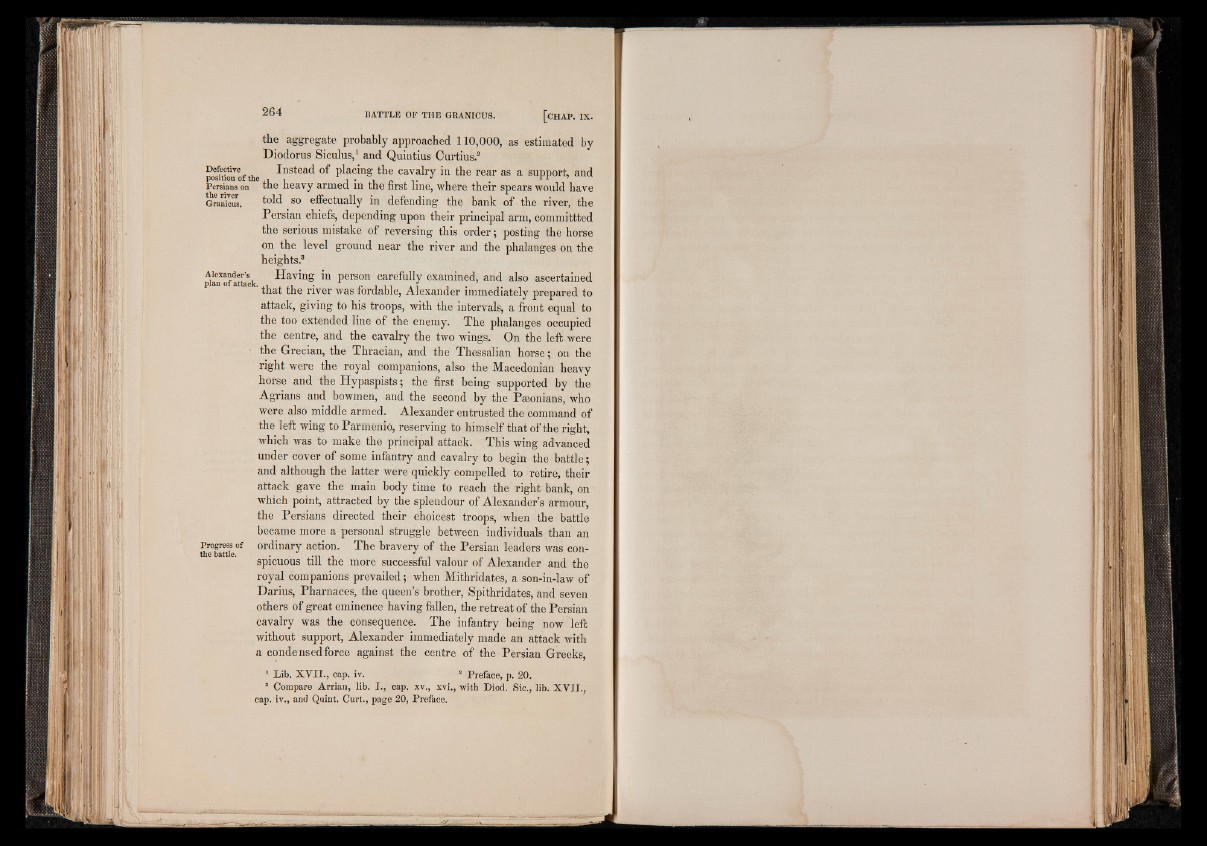
the aggregate probably approached 110,000, as estimated by
Diodorus Siculus,1 and Quintius Curtius.2
Defective Instead of placing the cavalry in the rear as a support, and position of the n • . . ^ . r r >
Persians on the heavy armed m the hrst line, where their spears would have
Granicus. so effectually in defending the bank of the river, the
Persian chiefs, depending upon their principal arm, committted
the serious mistake of reversing this order; posting the horse
on the level ground near the river and the phalanges on the
heights.3
phfn “ attack Having in person carefully examined, and also ascertained
that the river was fordable, Alexander immediately prepared to
attack, giving to his troops, with the intervals, a front equal to
the too extended line of the enemy. The phalanges occupied
the centre, and the cavalry the two wings. On the left were
■ the Grecian, the Thracian, and the Thessalian horse; on the
right were the royal companions, also the Macedonian heavy
horse and the Hypaspists; the first being supported by the
Agrians and bowmen, and the second by the Paeonians, who
were also middle armed. Alexander entrusted the command of
the left wing to Parmenio, reserving to himself that of the right,
which was to make the principal attack. This wing advanced
under cover of some infantry and cavalry to begin the battle;
and although the latter were quickly compelled to retire, their
attack gave the main body time to reach the right bank, on
which point, attracted by the splendour of Alexander’s armour,
the Persians directed their choicest troops, when the battle
became more a personal struggle between individuals than an
Progress of ordinary action. The bravery of the Persian leaders was conthe
battle. . -n i p i t spicuous till the more successful valour of Alexander and the
royal companions prevailed; when Mithridates, a son-in-law of
Darius, Pharnaces, the queen’s brother, Spithridates, and seven
others of great eminence having fallen, the retreat of the Persian
cavalry was the consequence. The infantry being now left
without support, Alexander immediately made an attack with
a condensed force against the centre of the Persian Greeks,
1 Lib. X V I I ., cap. iv. 8 Preface, p. 20.
3 Compare Arrian, lib. I., cap. xv., xvi., with Diod. Sic., lib. X V II.,
cap. iv., and Quint. Curt., page 20, Preface.